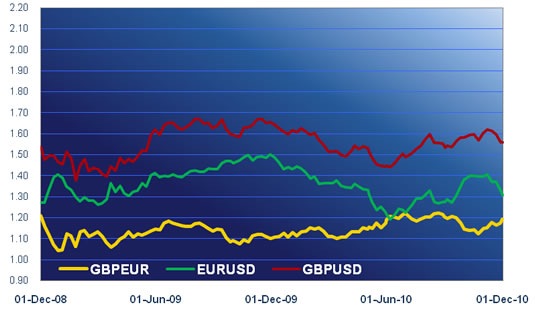– At a high rate of interest
– Investors optimistic on US jobs situation
Good morning. Stories of profligacy and waste figure prominently in today’s papers. The boss of the UK Trade & Industry quango has been encouraging his staff to get £1 million “out of the door” to avoid under-spending the year’s budget. Cheshire fire brigade has spent £26k on an inflatable fire engine. A spokesman said; “We flood it with synthetic smoke and children learn how to crawl under it.” Let’s hope nobody blows it up. According to a poll, the nation wastes £3.5 billion in the January sales, buying clothes that are too small, an average of £71 per adult. More than a quarter of women admit to being regular buyers of stuff they know will not be of any use.
On a smaller scale, investors splurged €500 million on six-month Portuguese government bills yesterday. In return they will earn a 3.686% rate of interest, appreciably more than the 2.045% they agreed at the last auction four months ago and way above the 0.592% they were able to get at the beginning of last year. Usurious interest rate aside, Portugal was pleased with the outcome because there were buyers for 2.6 times the amount of bills on offer. There will be more Portuguese paper to come this year, perhaps €20 billion in total. The real test will be when investors are asked to buy the longer maturities. Ten-year bonds could be a bit harder to shift than six-month bills unless the mystery buyer turns out to be China.
As the euro dodged any fallout from the Portuguese auction it had to cope at the same time with two other bond-related developments. In one, the EU let it be known that it will be publishing a “consultation paper” on how to protect European taxpayers from banking crises. The expectation is that it will involve bond-holders having to take a loss on their investments if a bank gets into trouble. The other story related to Irish government bonds: The Swiss National Bank will no longer accept certain of them as collateral. The news was not desperate for the euro but it was certainly not constructive.
The North American dollars were in the driving seat on Wednesday, especially after ADP’s employment change figure came in at +297k. The number was way higher than anyone had been expecting and it made investors optimistic that tomorrow’s non-farm payrolls number could be similarly positive. The “official” consensus among economists is that around 140k people will have found jobs in December but the ADP figure will have swerved expectations to a higher level.
Other ecostats yesterday included the Euroland services sector purchasing managers’ index (PMI), which was a point lower at 54.2, the UK construction sector PMI, three points down and into the contraction zone at 49.1, and the US services PMI, two points higher at 57.1. Euro zone industrial new orders rose by a respectable 1.4% in October and producer prices were up by 4.54% in the year to November.
Britain’s services PMI comes out this morning. It is predicted to be almost unchanged from last month’s 53.0 and is the only UK ecostat. A slew of confidence measures from across the euro zone will be accompanied by Euroland retail sales and German factory orders. The States’ contribution will be weekly jobless claims and Canada delivers the Ivey cross-sector PMI, which some analysts believe could be down by three points or more.
If the US dollar does not blot its copybook it could be in for another good day. If the euro cannot come up with a reason for investors to love it, it could be in for more erosion.






